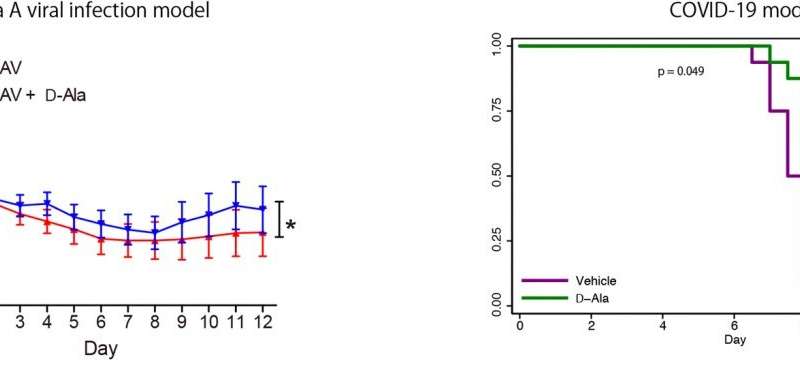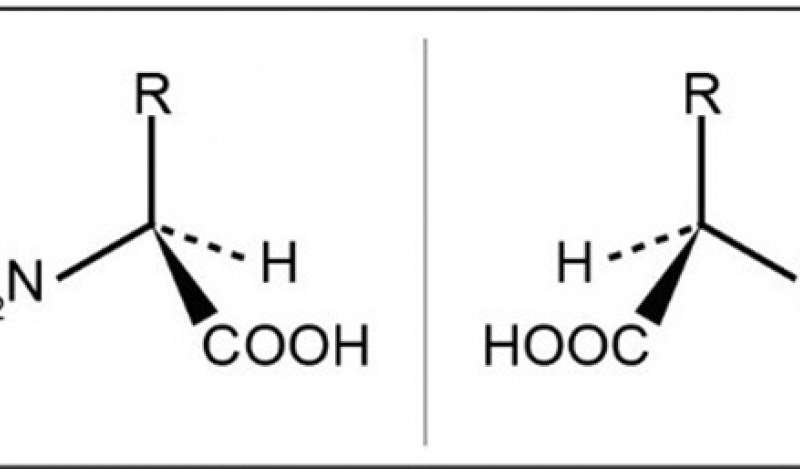
Just as bricks are key components in constructing a building, molecules known as amino acids are essential components in constructing proteins in the body. Recently, researchers in Japan investigated the role of a particular group of amino acids, known as D-amino acids, in the progression of viruses like influenza A virus (IAV) and SARS CoV-2, the virus responsible for COVID-19.
In a new study published in Biochimica et Biophysica Acta (BBA)—Molecular Basis of Disease, the research team has uncovered a relationship between D-amino acids and severe viral infection in both animals and humans.
While our understanding of COVID-19 has evolved during the COVID-19 pandemic, methods to predict disease severity and treat severe COVID-19 infection have been somewhat limited. D-amino acids have been previously shown to function as biomarkers for diseases such as kidney disease. However, the significance of D-amino acids in viral infection has not yet been explored, spurring the research team to investigate whether D-amino acids are affected during severe IAV infection or COVID-19.
“We first assessed serum levels of D-amino acids in a mouse model of severe IAV infection and found that D-amino acids were greatly reduced in these mice compared with uninfected mice,” says lead author of the study Shihoko Kimura-Ohba. “When we evaluated serum from patients with severe COVID-19, we also found reduced levels of D-amino acids compared to those of healthy control subjects.”


The researchers next explored the effects of supplementation with a specific D-amino acid known as D-alanine in mouse models of IAV infection and COVID-19. IAV mice exhibited a severe reduction in body weight that was mitigated by D-alanine treatment, while survival rates were improved in COVID-19 mice who received D-alanine treatment.
“Our results indicate that D-amino acids may serve as biomarkers to reflect the severity of viral infection,” says senior author Tomonori Kimura. “Additionally, although the observed effects of D-alanine supplementation were limited, treatment with D-alanine may help to improve clinical outcomes in patients with severe viral infection.”
Source: Read Full Article
